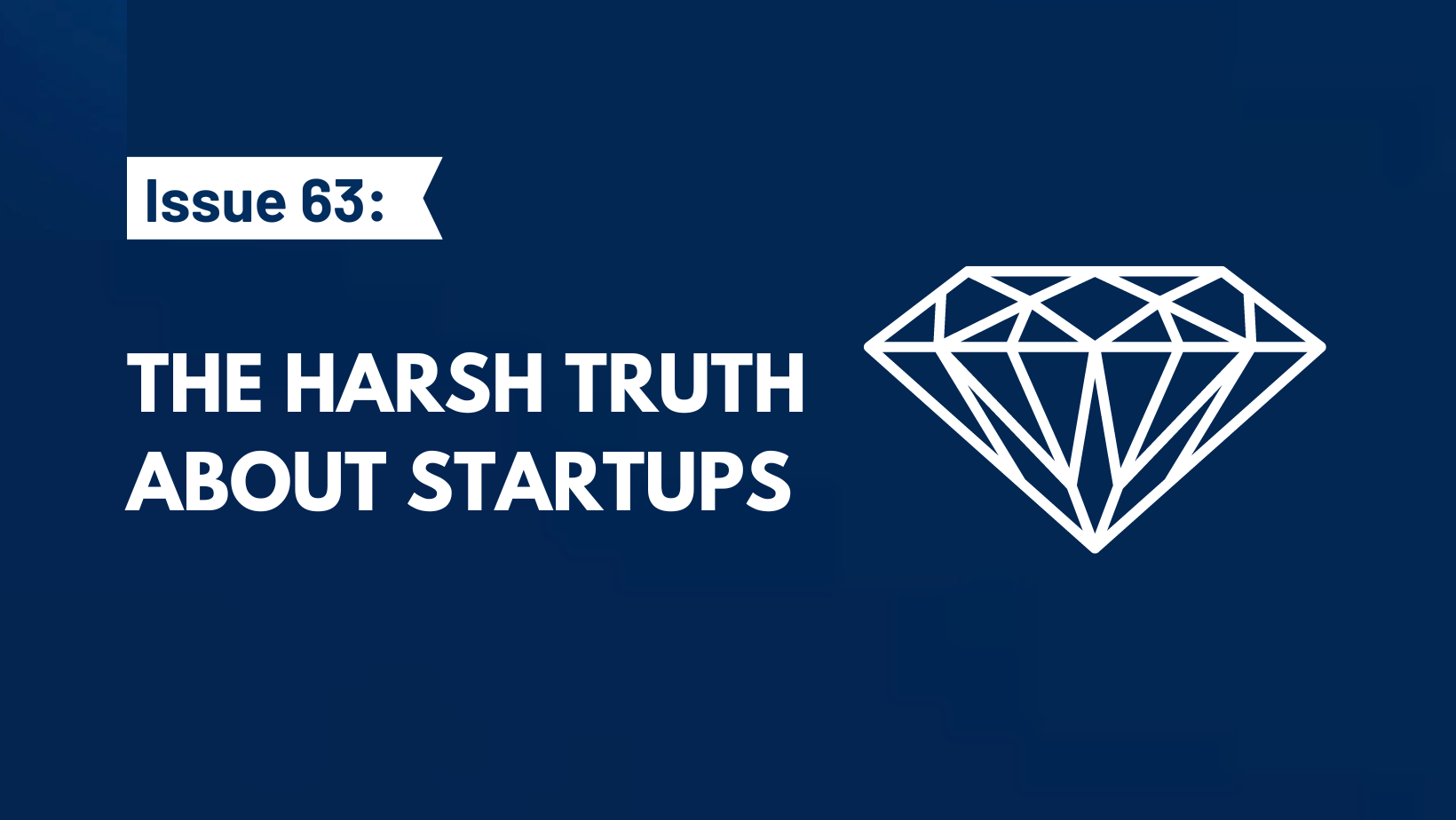NOTE: this was a past issue of my weekly newsletter, Timeless Gems. Join my free mailing list so you don’t miss out on future issues.
I know I have a lot of younger followers who are looking to start their first business. And I always get asked about what type of business first-time entrepreneurs should start. So I wanted to write an issue dedicated to this topic.
I’ll cut straight to the point: If you’re not already financially independent, launching a startup is a terrible idea.
By startup, I mean a business that requires a ton of capital, and having to raise that capital from angel investors & venture capitalists. Despite the hype and what you’ve read in the media, startups are a terrible way to build first-time wealth.
Play the odds
There’s a really good book called Everybody Lies that closely examines datasets for athletes.
The author details how the vast majority of professional athletes (NHL, NBA, etc.) came from wealthy or well-to-do families. The “rags to riches” story was extremely rare. Might seem surprising, but the author cites many logical reasons why this is the case.
I bet if you conducted the same study for successful startup founders, you’d notice the same patterns. I’m willing to wager that the vast majority of successful VC-backed startups had founders who were either already wealthy or came from wealthy families.
I don’t know if there is any data to objectively prove this, but there is an anecdote from Sam Altman (the godfather of startups) that makes this case:

This might be a tough pill to swallow for many folks but…
Startups are a game for the rich. If that’s not you, you are playing the wrong game.
Like the case with athletes, there are many logical reasons why successful startup founders are wealthy or come from well-to-do families. Better decision-making is probably one of the most important reasons.
When you have personal financial pressures, you end up making sub-optimal and short-term decisions for a business that requires more patience and long-term decisions (a startup). If you’re financially independent, you don’t have these pressures and therefore, have a structural advantage in building a startup.
Don’t let the headlines fool you
Even with the luxury of great decision-making, startups that make more than $0 for founders are rare outliers. In fact, many of the startups that end up being acquired often don’t result in a big payday for founders (due to dilution, valuation, liquidity preference, etc).
As an acquirer, I’ve been involved in numerous scenarios where the founder of a VC-backed startup was walking away with barely anything after years of dedication and hard work. This is far more common than you think.
The odds of selling your VC-backed startup to the perfect buyer for top dollar, are probably 0.1%. So even if the potential outcome means $100m for you, the expected value of your startup is $100,000. Is that worth risking 5-10 years of your working life?
Life is a numbers game. Either you play the odds or the odds play you.
Don’t let VCs fool you
They’re only gambling with money, but you’re gambling with your time. You can always make more money, but once your time is spent you’ll never get it back. Time is far more costly than money.
On the surface, it might appear like there is alignment (both founder & VC own the same business after all). But if you dig deeper, there is a huge difference in objectives. To the VC, your business is just 1 of 100. To them, it is inconsequential what happens to it. But to you, it’s 1 of 1, and you are banking on it building wealth for you. What’s a meaningful amount of money to you is far less than what a meaningful amount of money to the VC is.
I’ve seen VCs pressure/influence founders to make decisions that destroyed any chance for the founders to make money from the startup. The simple result of misaligned objectives.
Don’t fool yourself
You’re not trying to change the world, disrupt something, save humanity, etc. Don’t get caught up playing status games, virtue-signaling, or whatever else is being hyped at the time.
You’re in it for the money (that’s the whole point of being in business), make that clear to yourself and go get it. Your objective is financial freedom, so build a business that has high odds of delivering that to you in a reasonable time frame.
Why service businesses make great first businesses
Service businesses include consultancies, agencies, brokerages, and any business where you are effectively selling time for money and doesn’t require a ton of capital to start.
What would an employer pay you to do right now? You could probably turn that into a business. Pick a niche. Get good at selling & extracting money from clients by providing value.
Within a year or so you should be taking home well over six figures in annual owner earnings. Distribute all of the profits to yourself. Invest as much of it as possible, and if you’re young, use ample leverage. Within a few years, you should start to see your net worth climb over seven figures.
On a risk-adjusted basis, this is a far better monetary outcome than 99% of startups. Not to mention, this is what I would consider a “permissionless” way to build wealth. You don’t need to get permission from angels/VCs, you don’t need to get permission from a potential acquirer for an (unlikely) exit. You just need to be willing to put in the time and effort to have money flow from your clients into your own pockets. Hours in = dollars out.
For further reading on service businesses check out this blog post I wrote 3 years ago. I also recommend reading Built To Sell and E-Myth Revisited, both great books about starting and building a service business.




